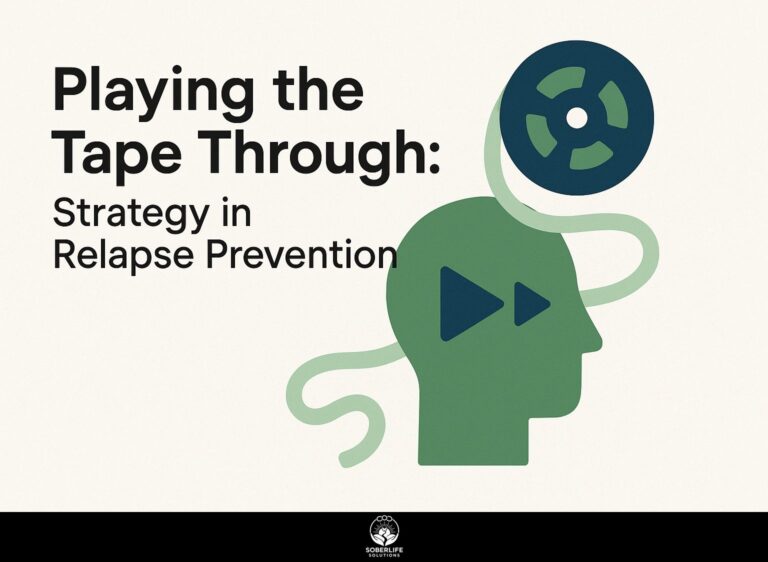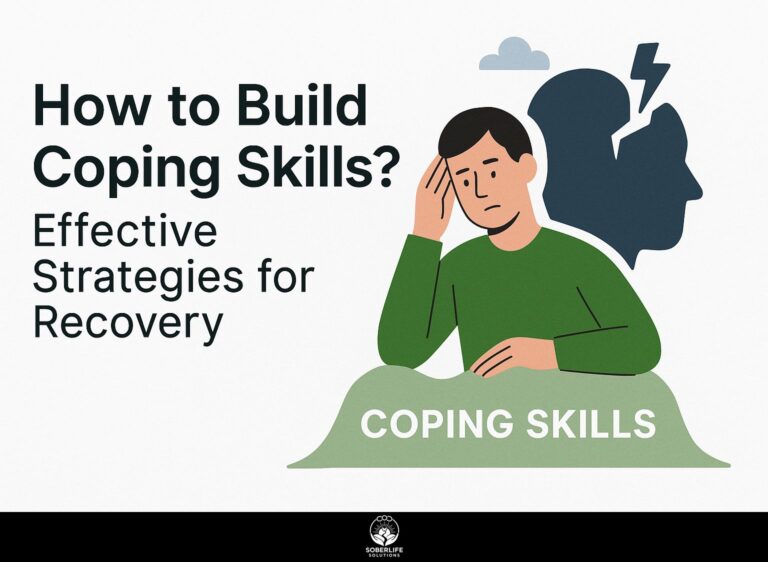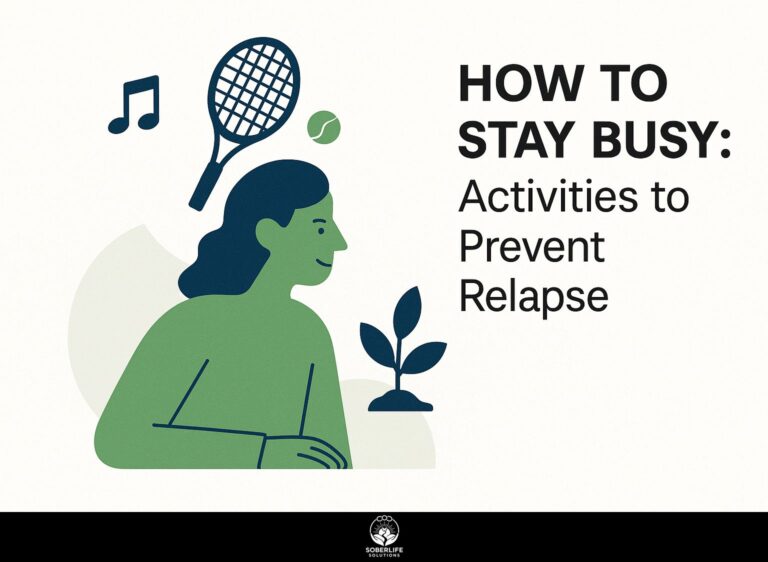Resilience: Benefits and Building Techniques
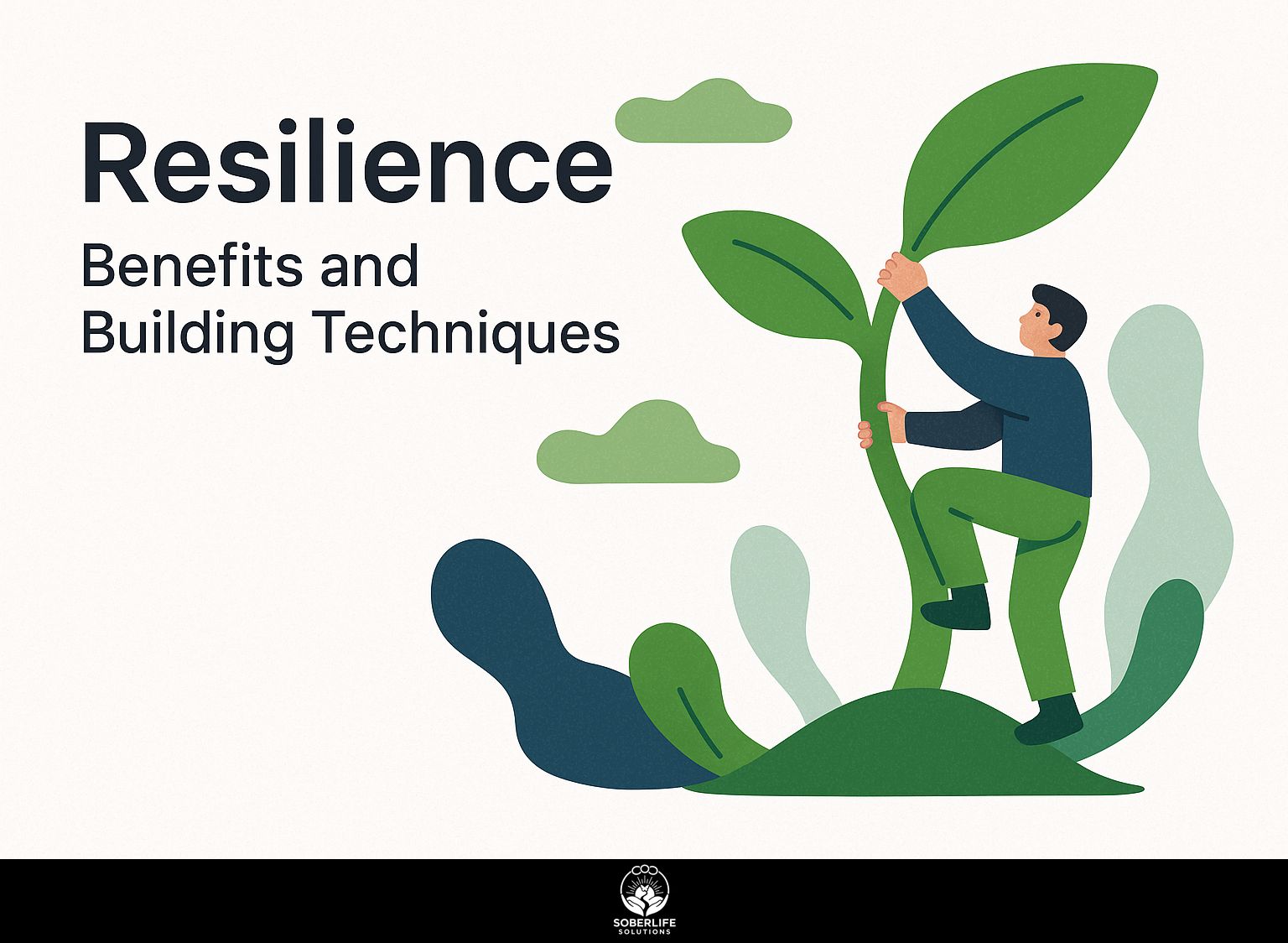
Resilience is key to mental health, helping us handle difficulties and manage stress. The Mayo Clinic says that building resilience can greatly improve our ability to learn how to deal with difficult situations in life. In this article, we’ll talk about the benefits of being resilient and share practical methods for developing this important trait. Learn how to build mental strength and succeed even when things are difficult.
Key Takeaways:
Definition and Importance
Resilience can be defined as the ability to mentally or emotionally cope with a crisis, emphasizing its role in emotional well-being.
Building resilience is essential for handling stress and challenges. Mental health specialists from places such as Cornell Health recommend some helpful techniques. For a deeper understanding, recent research findings published by Taylor & Francis highlight resilience definitions, theory, and challenges, providing a comprehensive overview of how individuals can enhance their emotional robustness.
- Building strong social relationships can offer help during difficult periods. Think about joining local groups or getting therapy.
- Second, maintaining a routine can bring structure and predictability, which helps mitigate anxiety (our deep dive into holistic approaches offers more techniques to enhance mental well-being).
- Third, using mindfulness methods like meditation or deep breathing can improve how you manage your emotions.
Setting achievable goals allows individuals to build confidence and a sense of purpose, reinforcing their resilience when challenges arise.
Overview of Resilience in Daily Life
Our daily strength is shown in how we keep a positive attitude even during difficult times.
This ability is essential for handling stress at work, where unexpected events can occur.
For example, when faced with a tight deadline, prioritizing tasks using a tool like Trello can help maintain focus and reduce overwhelm.
Building personal relationships through open communication strengthens bonds and provides support during difficult times.
Practicing mindfulness, like daily meditation or writing in a journal, helps people handle their emotions better by allowing them to work through their thoughts and feelings.
Applying these approaches can significantly support someone in handling daily challenges effectively.
Benefits of Resilience
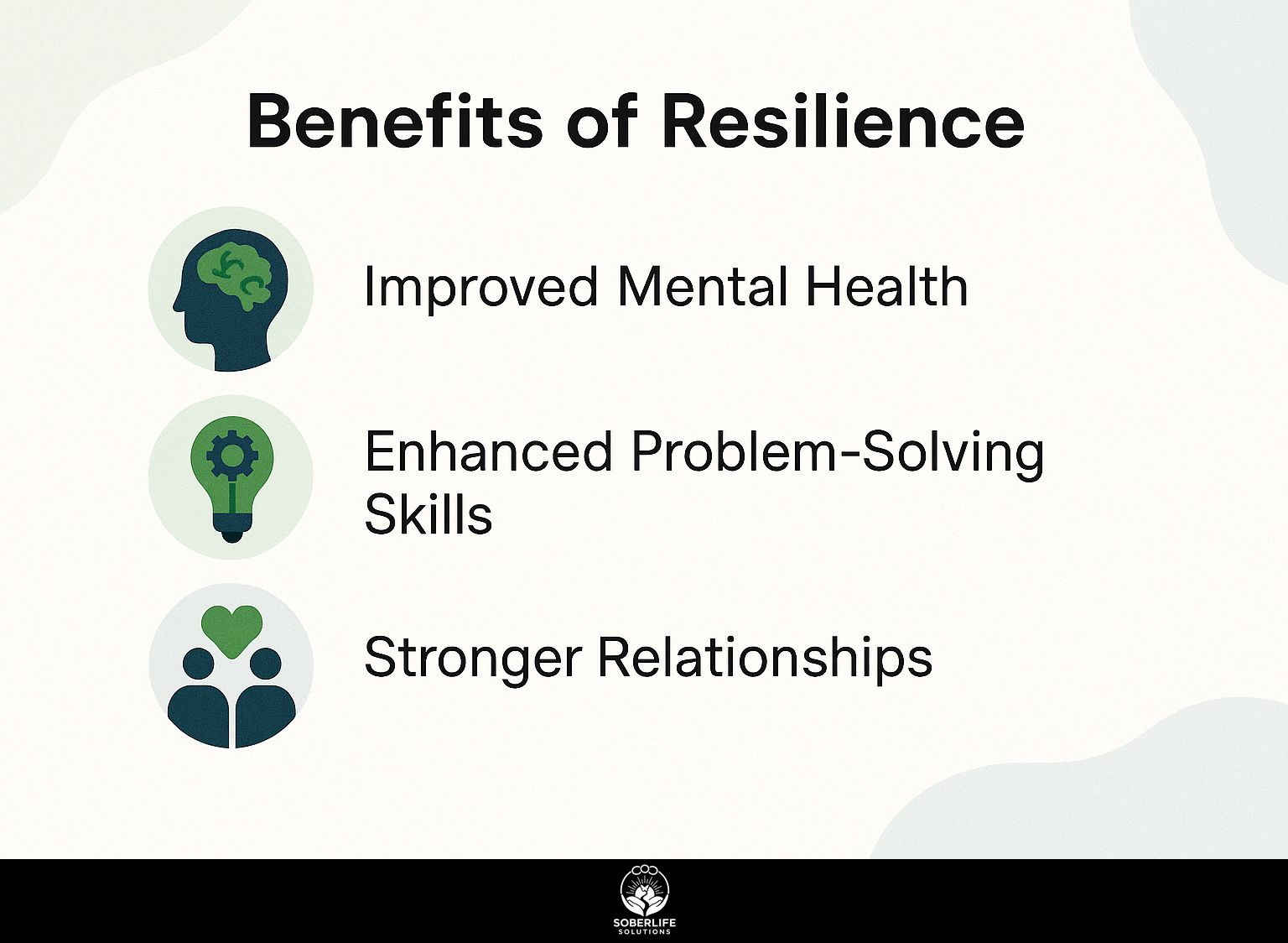
Resilience provides many benefits, such as better mental health and improved ways to handle stress, which are important for personal development. One of our most insightful case studies demonstrates the effectiveness of therapy techniques like CBT, DBT, and ACT in fostering resilience and preventing relapse.
Improved Mental Health
Practicing resilience techniques can lead to a 30% decrease in anxiety and depression symptoms, as supported by studies from the Mayo Clinic.
For instance, participants in a resilience training program reported significant improvements in emotional well-being after just 8 weeks.
Techniques such as cognitive reframing, mindfulness exercises, and maintaining a gratitude journal were integral to the curriculum. Recovery techniques like mindfulness have shown to be effective in promoting emotional stability and overall mental health.
Research at the University of Pennsylvania’s Positive Psychology Center showed that people who learned resilience techniques increased their happiness by 25%.
Using these methods strengthens personal coping skills and helps improve mental health over time as explained by the Mayo Clinic.
Enhanced Problem-Solving Skills
Building resilience improves the ability to solve problems, allowing people to tackle difficulties with a positive attitude.
One effective method to build resilience is through cognitive behavioral therapy (CBT) exercises. According to Every Mind Matters, you can start by identifying negative thoughts when facing problems, such as “I can’t handle this.”
Next, question these thoughts by looking for proof or other viewpoints. Practice mindfulness techniques, such as deep breathing or meditation, to increase emotional regulation.
Journaling your feelings can also provide clarity and reinforce positive thinking patterns. Over time, these habits can help build a strong mindset, enabling you to handle challenges with more confidence and creativity.
Stronger Relationships
People who can bounce back from difficulties often build better relationships because they talk honestly and ask for help during challenging periods.
To develop emotional resilience and improve social relationships, begin by focusing on really listening to others. This means truly engaging with others, asking follow-up questions, and showing empathy.
Make an effort to share your own feelings and experiences, which promotes trust and openness. Consider joining community groups or volunteering; shared activities create bonds and encourage support networks.
Ask for help when you face problems. This makes you tougher and improves your relationships. Regularly nurturing these connections is key to sustained emotional well-being.
Building Resilience Techniques
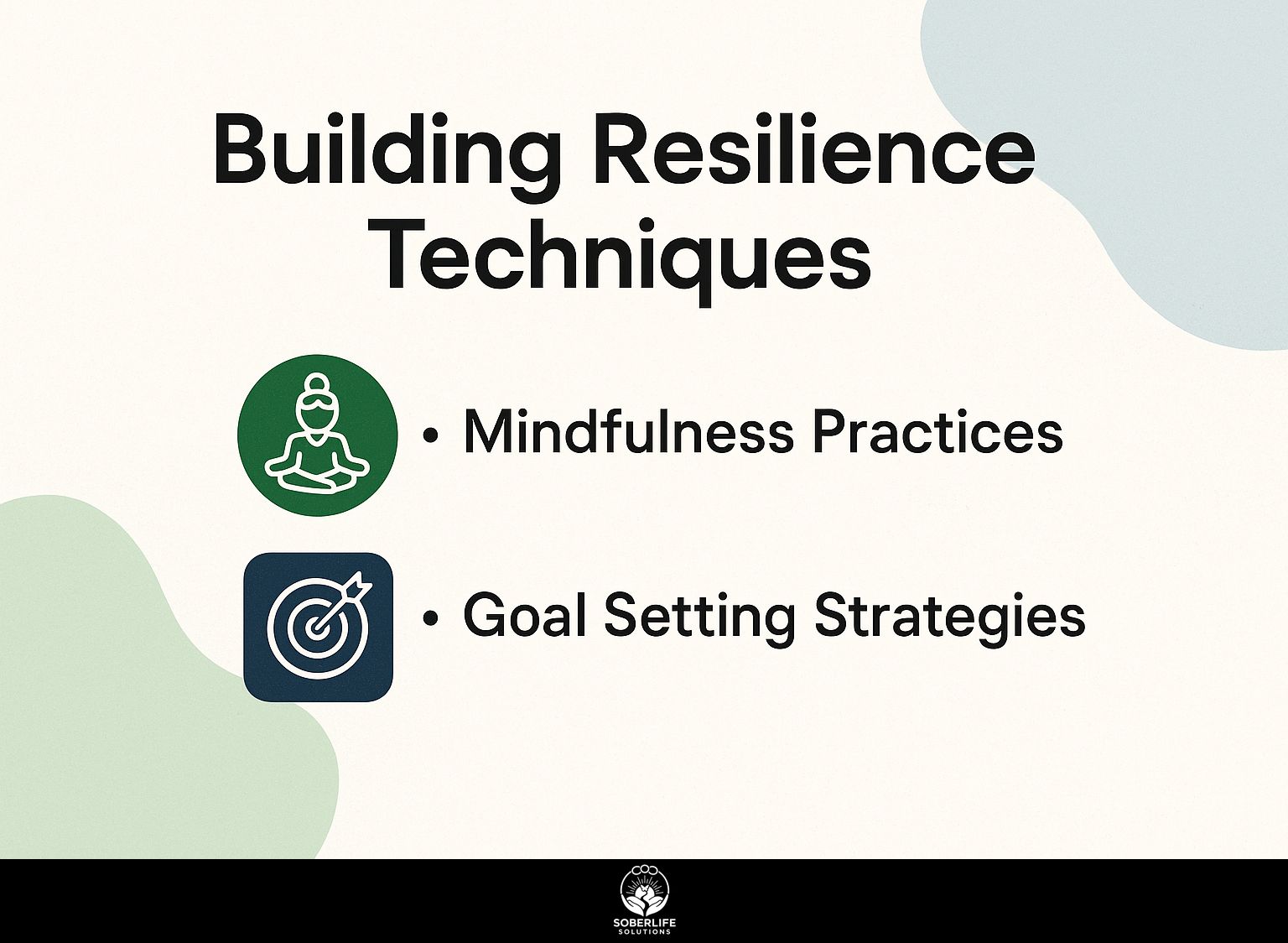
Building resilience includes practical methods like mindfulness exercises and setting clear goals to improve emotional strength. To deepen your understanding of these techniques, explore effective strategies in recovery techniques that incorporate mindfulness and meditation.
Mindfulness Practices
Adding mindfulness activities, like meditation and keeping a gratitude journal, can greatly improve resilience by helping people manage their emotions.
To practice mindfulness effectively, begin with daily meditation using apps like Headspace or Calm, which provide guided sessions suited to different needs. Aim for just 10 minutes each morning.
For self-reflection, keep a journal where you jot down three things you’re grateful for each evening. You could also try prompts like ‘What challenges did I face today?’ or ‘How did I handle stress?’
These practices help people better grasp their emotions, building a solid system for handling challenges and improving mental health overall.
Goal Setting Strategies
Setting clear goals helps build strength by giving specific targets and a reason to work toward them, leading to continuous personal development.
For effective goal setting, make sure your goals are clear, measurable, realistic, matter to you, and have a deadline.
For example, instead of saying “I want to get fit,” a clear goal would be “I will exercise for 30 minutes, five days a week for the next three months.” This specific plan helps you track your progress and keep motivated.
Another example could be aiming to save $1,000 in six months by setting aside $166 each month-a clear financial goal that encourages discipline and resilience as you work towards achieving it.
Overcoming Challenges
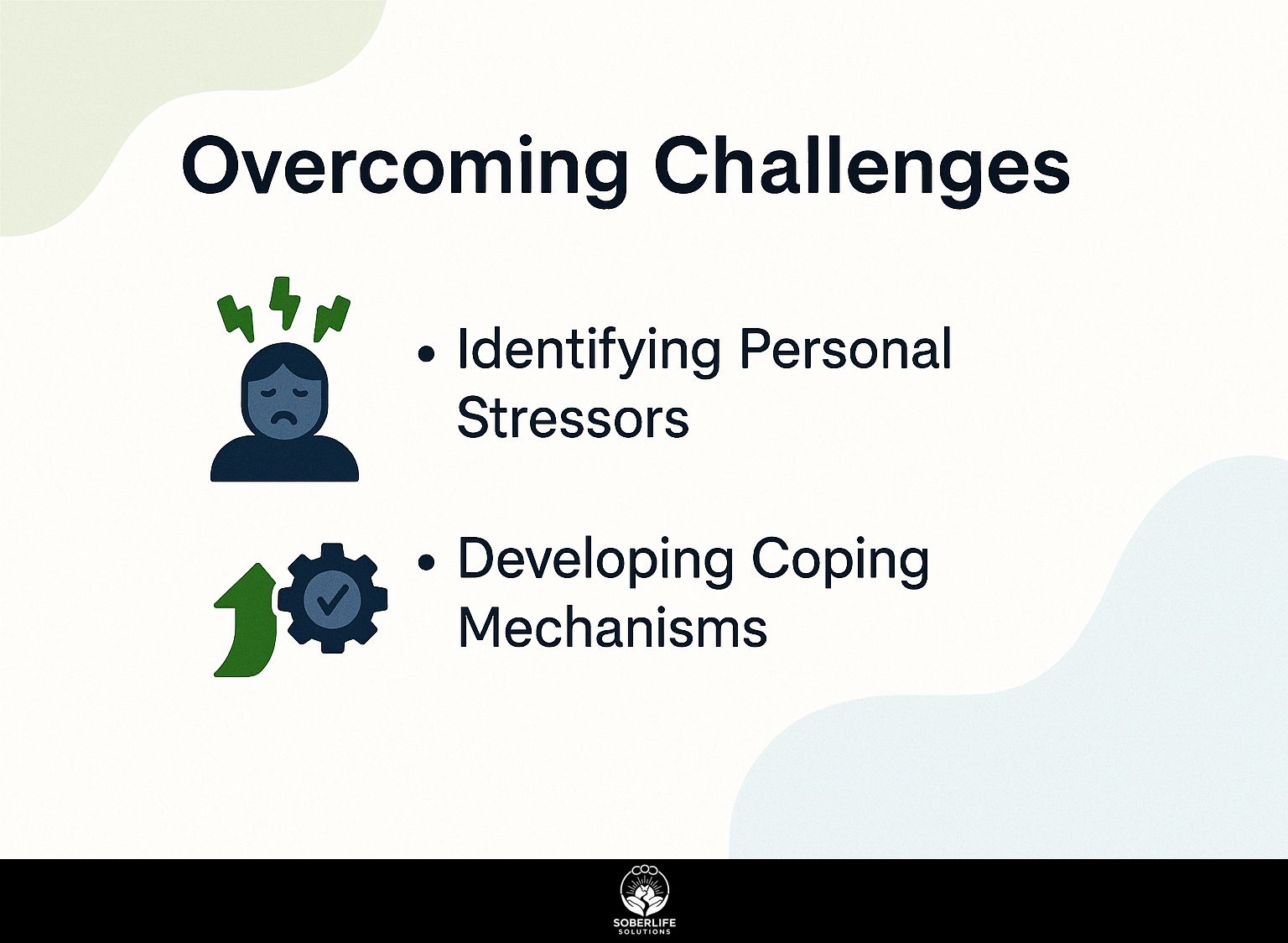
Finding what causes your stress is the first step to creating good ways to handle it and dealing with life’s difficulties.
Identifying Personal Stressors
People can get better at recognizing their emotions by writing in a journal every day to note down what stresses them and what sets off their stress.
Along with journaling, consider using reflective exercises like identifying recurring themes in your entries.
Tools such as the Self-Reflection Assessment or mood-tracking apps like Daylio can help pinpoint emotional responses throughout the day. Read your journal often to spot repeated sources of stress, like work deadlines, family issues, or social events.
Knowing what sets you off helps you come up with ways to handle your emotions, like focusing on the present moment or deciding limits, which helps you manage your feelings better and become stronger emotionally.
Developing Coping Mechanisms
Building effective coping mechanisms involves a combination of cognitive reframing and practical skills like physical activity.
Using specific strategies can make you more resilient. For example, regular exercise like jogging or yoga lifts your mood by releasing endorphins and makes your body healthier.
Practicing mindfulness techniques, like guided meditation or deep-breathing exercises, can significantly reduce anxiety. Cognitive behavioral methods, such as journaling to challenge negative thoughts, can clarify emotions and promote a positive mindset.
Doing these activities daily, even in small amounts, can build a reliable support system over time.
Support Systems
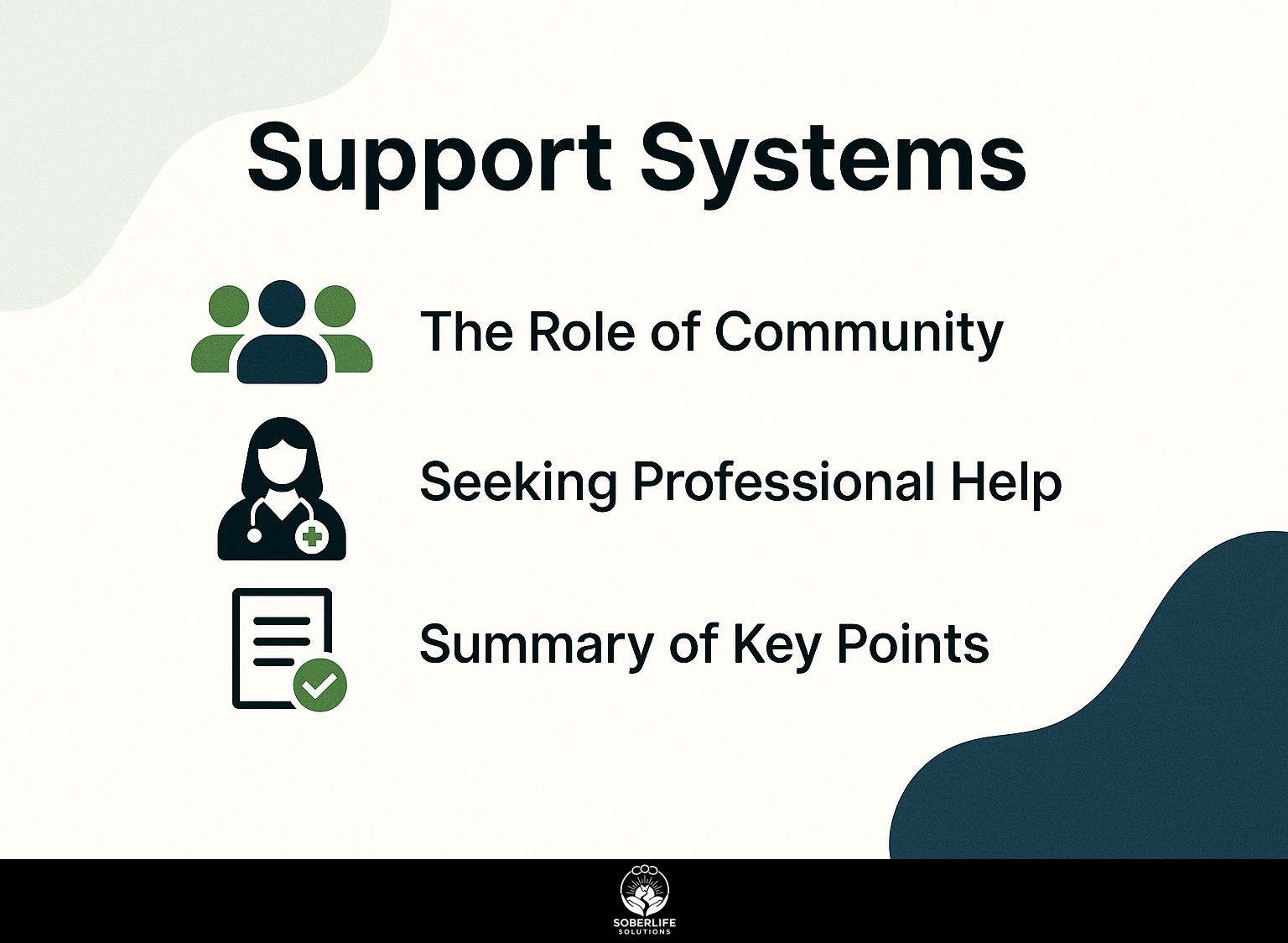
Reliable support networks are essential in developing resilience, providing emotional support during difficult periods. If interested, explore how peer support specialists are trained and their career paths to better understand the structure and effectiveness of these networks.
The Role of Community
Support from the community strengthens emotional health by creating important social connections.
Joining local organizations, like support groups or community centers, can greatly improve individual resilience.
Programs like Toastmasters help people get better at speaking and connect with others.
Similarly, volunteer initiatives, such as neighborhood clean-ups or food drives, enable individuals to contribute positively to their community, reinforcing a sense of belonging.
Websites like Meetup link people who have similar hobbies, helping them build supportive communities.
Participating in these activities promotes teamwork and creates a community feeling, which helps people become stronger.
Seeking Professional Help
Getting professional support, like therapy or counseling, can greatly improve resilience by providing organized help.
To find a therapist, begin by identifying your needs. Consider what approach suits you best; for instance, Cognitive Behavioral Therapy (CBT) is excellent for tackling negative thought patterns.
Use platforms like Psychology Today or BetterHelp to search for qualified professionals in your area. When reviewing profiles, consider qualifications, skills, and customer reviews to find a good fit.
After narrowing down your options, schedule initial consultations to assess compatibility and ask about their therapeutic approach, which will help you feel more comfortable moving forward.
Summary of Key Points
This article highlighted key strategies for building resilience, including identifying stressors and developing strong support systems.
To effectively implement these strategies, start by journaling to identify personal stressors-this helps clarify what significantly impacts your mental well-being.
Consider using apps like Daylio, which allow you to track moods and triggers.
Next, improve your support network by joining community groups or looking for online forums related to your interests. Platforms such as Meetup or Facebook Groups can connect you with like-minded individuals.
Practicing mindfulness through guided meditation apps like Headspace can strengthen your resilience over time. Regularly doing these activities will help develop a flexible mindset.
Frequently Asked Questions
What are the benefits of building resilience?
Becoming more resilient can boost mental and emotional well-being, strengthen abilities in handling change and addressing issues, and make life better overall.
How does resilience help in difficult situations?
Resilience allows individuals to bounce back and recover from challenging situations, helping them to overcome obstacles and move forward in a positive manner.
What are some ways to build resilience?
Some techniques for building resilience include developing a support system, practicing self-care, and learning to manage stress and emotions effectively.
Can resilience be learned?
Yes, resilience is a skill that can be learned and strengthened over time through various practices and coping strategies.
What are some long-term benefits of resilience?
Building resilience over time can increase your confidence, improve your decision-making, and clarify your goals and path in life.
Can becoming more resilient help avoid problems later on?
Though it can’t promise a perfect life, developing resilience can make it easier for people to deal with and recover from upcoming problems and difficulties. It can also help prevent the development of mental health issues such as anxiety and depression.

